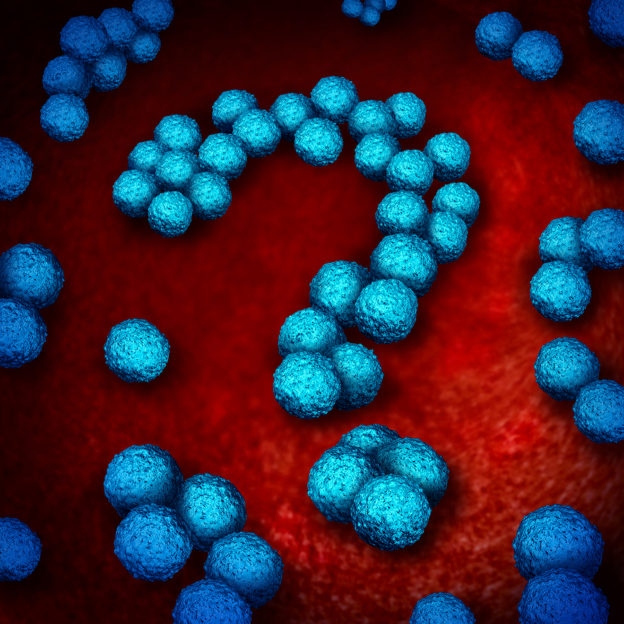By David Blyweiss, M.D., Advanced Natural Wellness
June 8, 2016
- Never take these drugs unless absolutely necessary
- The scary side of antibiotics
- Strategies to dodge the side effects of antibiotic treatment
Some patients insist that they need an antibiotic for their bronchitis or cold – even though these problems are rarely caused by bacteria. Still, there are plenty of doctors who will pull out the prescription pad and satisfy their request.
I’m not one of them.
Now, this doesn’t mean I never prescribe antibiotics. I do. When they’re absolutely necessary!
The problem with antibiotics is that they disrupt the delicate balance of bacteria living in your gut microbiome as well as everywhere else in your body that has a balanced environment of bacteria. This is why you might experience gastrointestinal upsets while taking them. Nausea, stomach pain and loose stool are quite common. Vaginal yeast infections are too common in women after taking an antibiotic for a urinary tract infection.
But these are just minor upsets compared to the potential damage they can cause.
Open your arteries, improve blood flow for a new health miracle...
Did you know your circulatory system has over 60,000 miles of arteries, veins and other blood vessels, if stretched end to end?
But as you age, your blood vessels undergo changes, which may cause them to stiffen, thicken and get clogged.
GOOD NEWS! Doctors have now identified a “Miracle Molecule” inside your arteries that helps OPEN your arteries and IMPROVE blood flow.
It’s what Dr. Valentin Fuster calls it, "One of the most important discoveries in the history of cardiovascular medicine."To you, that means...
- Healthy blood pressure
- Sharper mind and memory
- Skyrocketing energy and muscular strength
- Increased pleasure and passion in the bedroom
- Improved circulation to every cell and organ in your body
Go here to discover a new natural way to significantly boost the levels of this miracle molecule in YOUR body NOW!
For example, when you take an antibiotic, it potentially opens you up to a nasty diarrheal infection from another bacteria called clostridium difficile. These are drug-resistant bacteria that attack the lining of your intestines. Symptoms include persistent diarrhea, inflammation and abdominal pain.
In a single year c. diff infects about a half million people. But it’s not just the pain and diarrhea you have to worry about.
A c. diff infection can lead to “toxic megacolon”. This is a condition that severely damages your bowels. Worse, c. diff produces a powerful toxin that can actually kill you.
This is a very scary disease. But there’s another problem associated with antibiotics that’s even more frightening.
The Link between Antibiotics and Delirium
In some people, antibiotics appear to cause delirium. In other words, these drugs could literally make you lose your mind – plaguing you with delusions and hallucinations!
They can also cause you to lose control of your body movements, experience involuntary muscle twitching and fall prey to seizures.
Are You Suffering From...
- Love handles and a pot belly
- Romance that isn't what it used to
- Forgetfulness and inattention
- Low (or no) strength and endurance
- A sex drive that's shifted into neutral...or worse
If so...you may have Mature Male Burnout. Click here to discover more about this unique condition and what you can do about it.
More specifically…
- Penicillin, sulfonamides, fluoroquinolones and macrolides are all associated with psychosis.
- Seizures are most often associated with penicillin and cephalosporins.
- Metronidazole is linked to brain dysfunction, abnormal brain scans and impaired muscle coordination.
You see, it’s not just your stomach that gets upset when your gut bacteria get thrown out of whack.
These microbes are also responsible for producing essential neurotransmitters that your brain needs. You’ve probably heard of a few of them, like serotonin and dopamine. Others include norepinephrine, acetylcholine and gamma amino butyric acid – or GABA for short.
Shortages in some of these neurotransmitters are linked to Alzheimer’s, Parkinson’s and Huntington’s disease. They can affect your motor control and muscle function. They also protect against things like manic depression and impulsive behaviors.
This may explain how antibiotic use (via reduced gut microbiome) can produce symptoms of delirium and psychosis.
Strategies to Dodge the Side Effects of Antibiotics
You can clearly see why I sidestep antibiotics whenever possible. However, if you do have to take one, there are certain things you can do to help prevent negative side effects.
Your first priority is supplementing with a good probiotic. Even though antibiotics kill both good and bad bacteria, taking a probiotic can help reduce the negative side effects. For example, if you take a probiotic while on antibiotics, you can cut your risk of developing c. diff by about two thirds.
Look for one that contains multiple strains of lactobacillus and bifobacterium. The more strains and the higher the colony count, the better off you will be.Think billions and billions… not millions.
Improving the diversity of your gut bacteria is another top priority. The more diverse your gut microbiome is, the better chances you have of getting through antibiotic therapy without mishap.
You can increase bacterial richness and diversity in your gut by eating more fermented foods. Some of the best include miso, natto, kefir, kimchi, kombucha, tempeh and sauerkraut (homemade organic sauerkraut may be the absolute best of the lot).
It’s also a good idea to get the bulk of your fiber from soluble sources while taking an antibiotic. There are two reasons for this.
First, the type of fiber you’re probably most familiar with – insoluble fiber – can further irritate your gut lining. Second, soluble fiber goes through a fermentation process in your gut. This helps the good bacteria in your digestive system to flourish.
And remember! Never take an antibiotic when it’s not necessary. The more you can reduce your exposure to them, the more likely they are to work when you need them the most.
SOURCES:
Transcript for CDC Telebriefing: Study on Clostridium difficile infection. Press briefing transcript. Centers for Disease Control and Prevention. Feb 2015.
Common Antibiotics May Be Linked to Temporary Mental Confusion. Press Release. American Academy of Neurology. Feb 2016.
Goldenberg JZ, et al. The use of probiotics to prevent C. difficile diarrhea associated with antibiotic use. Cochrane Database of Systematic Reviews 2013, Issue 5. Art. No.: CD006095.







